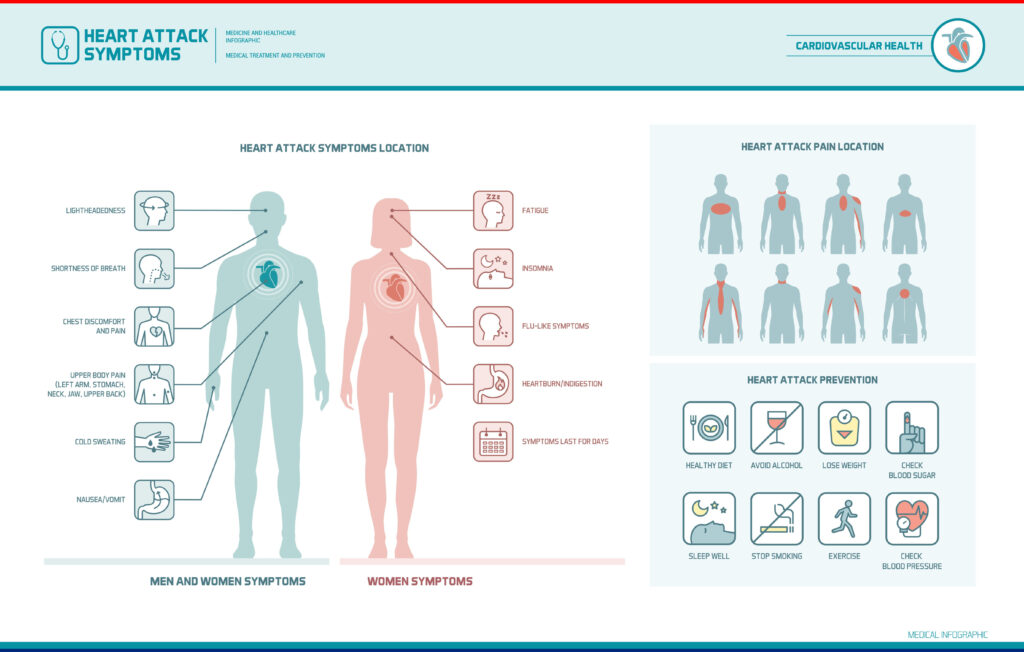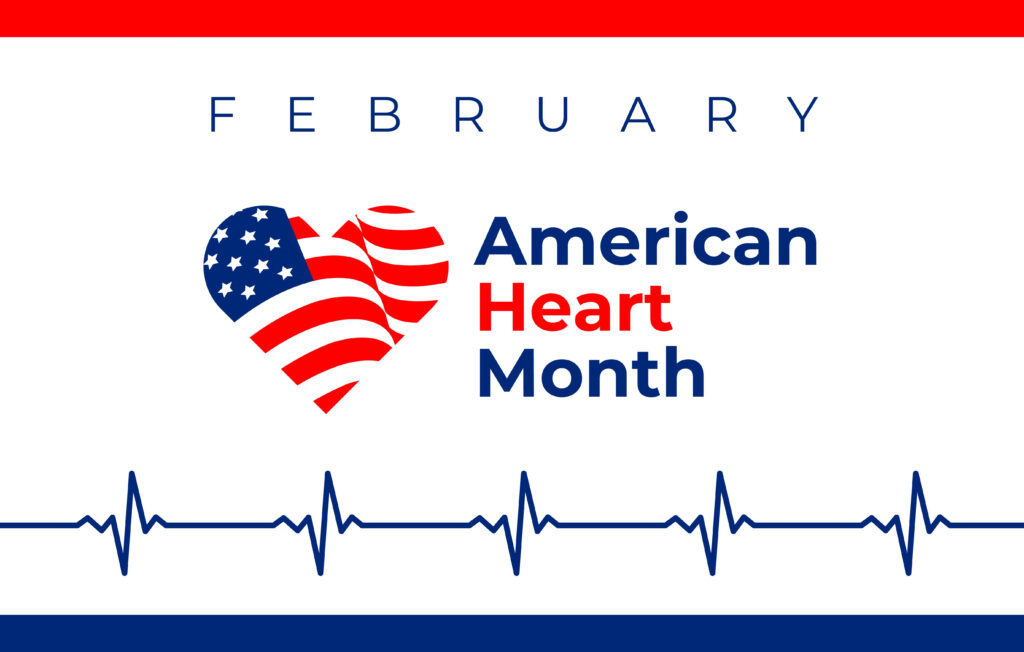February is American Heart Month
Welcome to February, the month that not only celebrates love but also emphasizes the importance of taking care of our hearts. That’s right, it’s American Heart Month! This is a time when we raise awareness about cardiovascular health and encourage everyone to prioritize their heart well-being. So, whether you’re looking to learn life-saving techniques like CPR or simply want to adopt a heart-healthy lifestyle, this blog post has got you covered. Get ready to dive into a world of knowledge as we explore everything from basic life support classes to understanding the signs and symptoms of a heart attack. Let’s get started on our journey towards optimal heart health!
Get your Basic Life Support Class, Learn CPR,
Are you prepared to save a life? Taking a Basic Life Support (BLS) class should be at the top of your priority list. In this course, you’ll learn vital skills like Cardiopulmonary Resuscitation (CPR), which can mean the difference between life and death during cardiac emergencies.
So, what exactly is CPR? It’s an emergency procedure that combines chest compressions and rescue breaths to keep oxygenated blood flowing through the body when someone’s heartbeat or breathing has stopped. By performing CPR, you provide temporary assistance until professional help arrives.
Signs and Symptoms of a Heart Attack
Recognizing the signs and symptoms of a heart attack is crucial for prompt action. Common indications include chest pain or discomfort, shortness of breath, nausea, lightheadedness, and cold sweats. If these symptoms arise suddenly or persist for more than a few minutes, don’t hesitate to call 911. (American Heart Association)
Heart attacks are alarmingly common in the United States with millions occurring each year. These events not only cause immense physical suffering but also take an emotional toll on affected individuals and their loved ones. Understanding how they happen and being proactive about prevention is key to combating this widespread health issue.
“One person dies every 33 seconds in the United States from cardiovascular disease. About 695,000 people in the United States died from heart disease in 2021—that’s 1 in every 5 deaths. Heart disease cost the United States about $239.9 billion each year from 2018 to 2019.” (CDC)

Coronary Artery Disease
Atherosclerotic plaque plays a significant role in heart attacks. This buildup of fat deposits in the arteries restricts blood flow to the heart muscle. Over time, if left untreated or managed poorly through lifestyle changes, it can lead to severe blockages and potentially fatal consequences.
Common Heart Diseases and Conditions
Heart disease is a broad term that encompasses various conditions affecting the heart. These conditions can range from minor issues to life-threatening diseases. Understanding these common heart diseases and conditions is crucial for taking proactive steps towards a healthier heart.
One of the most prevalent heart diseases is coronary artery disease (CAD). It occurs when the arteries supplying blood to the heart become narrow or blocked due to atherosclerotic plaque buildup. This can lead to angina, chest pain caused by reduced blood flow, or even a heart attack if the blood flow is completely cut off.
Irregular Heartbeats
Another commonly encountered condition is arrhythmia, which refers to an irregular heartbeat rhythm. Arrhythmias can range from harmless palpitations to severe abnormalities that require medical intervention.
Heart failure occurs when the heart cannot pump enough blood to meet the body’s needs. It often develops as a result of other underlying cardiovascular problems such as high blood pressure or CAD.
Valvular heart disease affects one or more of the four valves in your heart, leading to improper functioning. This can cause symptoms like shortness of breath, fatigue, and swelling in different parts of your body.
Stay tuned as we delve deeper into why heart health matters so much and explore various conditions associated with cardiovascular well-being. From risk factors for heart disease to tips on maintaining optimal heart health through diet and exercise – we’ve got all aspects covered!
The Importance of Heart Health
Maintaining a healthy heart is crucial for overall well-being. After all, our hearts are responsible for pumping oxygen-rich blood throughout our bodies, supplying every organ and tissue with the vital nutrients they need to function properly. Without a strong and healthy heart, our bodies can suffer from various cardiovascular diseases and conditions.
Heart disease remains the leading cause of death worldwide, and it’s important that we prioritize our heart health to reduce this risk. By taking proactive steps towards maintaining a healthy heart, we can significantly improve our quality of life.
One way to promote heart health is by adopting a nutritious diet. Consuming foods rich in omega-3 fatty acids like salmon or walnuts can help reduce inflammation and lower the risk of cardiovascular disease. Incorporating fruits, vegetables, whole grains, lean proteins, and low-fat dairy products into your meals can also contribute to a healthier heart. (American Diabetes Association)
Regular physical activity is another key aspect of maintaining good heart health. Engaging in aerobic exercises such as brisk walking, cycling or swimming helps strengthen the muscles of the heart while improving overall cardiovascular fitness. Aim for at least 150 minutes of moderate-intensity exercise per week to reap maximum benefits.
Managing stress levels is equally important when it comes to preserving cardiac health. Chronic stress has been linked to an increased risk of developing heart disease over time due to its impact on blood pressure and other physiological factors. Taking up relaxation techniques such as deep breathing exercises or meditation can help alleviate stress and promote better heart health.
It’s essential not only to be aware of these common conditions but also take preventive measures and seek appropriate treatment if needed. Regular check-ups with your doctor and adopting healthy lifestyle habits will go a long way in maintaining optimal cardiac health.
Risk Factors for Heart Disease
When it comes to heart disease, there are several risk factors that can increase your chances of developing this serious condition. Some of these risk factors are out of our control, such as age and family history, while others can be managed through lifestyle changes.
Age is a major risk factor for heart disease. As we get older, our risk increases significantly. Family history also plays a role in determining your likelihood of developing heart disease. If you have close relatives who have had heart problems, you may be at a higher risk.
Another important factor is high blood pressure. This puts added strain on the heart and increases the chances of developing cardiovascular issues. High cholesterol levels also contribute to the formation of atherosclerotic plaque in the arteries, which can lead to blockages and potentially trigger a heart attack.
Other modifiable risk factors include smoking, obesity, lack of physical activity, and poor diet. Smoking damages blood vessels and makes them more susceptible to narrowing or clotting. Obesity puts additional stress on the heart and can lead to conditions like diabetes that further increase cardiovascular risks. (Medscape)
It’s not just about individual behavior either – socioeconomic status can play a role too. People with lower incomes often face challenges accessing healthcare services and adopting healthier lifestyles due to limited resources or education.
Understanding these risk factors is crucial because it empowers us to take action towards preventing heart disease before it becomes an issue. By making positive changes like quitting smoking, maintaining a healthy weight, eating nutritious foods rich in fiber and low in saturated fats, exercising regularly, managing stress levels effectively – all these steps combined will help reduce your chances of developing this life-threatening condition.
Remember that prevention is always better than cure when it comes to matters concerning our hearts!
How to Keep Your Heart Healthy
One of the most crucial aspects of maintaining heart health is adopting a healthy lifestyle. This includes making smart choices when it comes to diet and exercise. Incorporating heart-healthy foods into your daily meals can go a long way in preventing cardiovascular diseases.
Start by focusing on consuming a variety of fruits, vegetables, whole grains, lean proteins, and low-fat dairy products. These nutrient-rich foods provide essential vitamins, minerals, and antioxidants that support optimal heart function. (Harvard School of Public Health)
Regular physical activity is equally important for keeping your heart in top shape. Aim for at least 150 minutes of moderate-intensity aerobic exercise each week or 75 minutes of vigorous-intensity exercise. Engaging in activities such as brisk walking, swimming, cycling, or dancing can improve cardiovascular fitness and reduce the risk of heart disease.
In addition to diet and exercise, managing stress levels plays a significant role in maintaining good heart health. Chronic stress has been linked to an increased risk of developing cardiovascular conditions like high blood pressure and coronary artery disease.
Incorporating relaxation techniques such as deep breathing exercises or meditation into your routine can help alleviate stress and promote overall well-being. Finding healthy outlets for stress relief such as engaging in hobbies or spending time with loved ones is also beneficial.
By prioritizing a nutritious diet, regular physical activity, and effective stress management techniques you are taking proactive steps towards ensuring the long-term health of your heart.
Diet and Exercise Tips for a Healthy Heart
Diet and exercise play a crucial role in maintaining a healthy heart. By making smart choices in what we eat and staying physically active, we can significantly reduce the risk of heart disease.
When it comes to diet, opt for heart-healthy foods such as fruits, vegetables, whole grains, lean proteins, and low-fat dairy products. These foods are loaded with essential nutrients that promote cardiovascular health. Avoid saturated fats found in fried foods and processed snacks, as they can raise cholesterol levels.
Incorporating regular physical activity into your routine is equally important. Aim for at least 30 minutes of moderate-intensity exercise most days of the week. This could be something as simple as brisk walking or cycling. Regular exercise helps strengthen the heart muscle, improve circulation and lower blood pressure.
It’s also beneficial to maintain a healthy weight since excess pounds put additional strain on the heart. Alongside a balanced diet and exercise regimen, limit alcohol consumption and quit smoking if you’re a smoker.
Remember that small changes can make a big difference when it comes to your heart health. So start by incorporating these tips into your lifestyle today!
Understanding and Managing Stress for a Stronger Heart
Stress is an inevitable part of life, but it’s important to recognize the impact it can have on our heart health. When we’re stressed, our bodies release stress hormones that can increase blood pressure and strain our cardiovascular system. This puts us at a higher risk for heart disease.
So how can we understand and manage stress to keep our hearts stronger? One effective strategy is practicing relaxation techniques such as deep breathing exercises, meditation, or yoga. These activities help calm both the mind and body, reducing the effects of stress on our hearts.
Another important aspect of managing stress is finding healthy outlets for emotions. Talking with friends or family members about your concerns or seeking support from a therapist can provide valuable perspective and help alleviate stress.
In addition to these strategies, regular exercise plays a crucial role in managing stress levels. Physical activity releases endorphins – natural mood boosters – which can counteract the negative effects of stress on the heart.
Prioritizing self-care is essential for managing stress. Making time for hobbies you enjoy, getting enough sleep each night, and maintaining a balanced diet are all factors that contribute to overall well-being and reduce daily stresses.
By understanding how stress affects our hearts and implementing effective management techniques into our daily lives, we can ensure better heart health in the long run. So take some time today to evaluate your own sources of stress and start incorporating these strategies into your routine!
Conclusion
In this article, we have discussed the importance of heart health and ways to keep your heart healthy. From learning CPR and taking basic life support classes to understanding the signs and symptoms of a heart attack, there are several steps you can take to protect your heart.
It is crucial to be aware of common heart diseases and conditions, as well as the risk factors associated with them. By making positive lifestyle changes such as maintaining a healthy diet, engaging in regular exercise, managing stress effectively, and monitoring blood pressure levels, you can greatly reduce your risk.
The American Heart Association recommends incorporating heart-healthy foods into your diet while limiting processed foods high in saturated fats and sodium. Regular physical activity not only helps maintain a healthy weight but also strengthens your cardiovascular system.
Moreover, stress management techniques like deep breathing exercises or mindfulness meditation can significantly improve overall heart health. It’s important to find what works best for you when it comes to managing stress on a daily basis.
Remember that taking care of your heart should be a year-round commitment rather than just during American Heart Month. Prioritize self-care by scheduling regular check-ups with healthcare professionals who can provide guidance tailored specifically to your needs.
By staying proactive about maintaining good cardiovascular health through education, awareness, and action today – you’re investing in a healthier future for yourself tomorrow!
This article is written by Nancy Lydia Kimmel, BS, AS, MSN-FNP-BC,
Nancy is currently an instructor at Phlebotomy Career Training and a practicing family nurse practitioner in Michigan. Ms. Kimmel is currently attending Xavier University of Medicine for her MD year III and Chamberlin University for her Doctorate in Nursing Practice.
Disclosure: This article is meant to be informative and does not offer medical advice. Readers are encouraged to follow up with their family physician for consult.

Nancy L. Kimmel obtained her PhD in Environmental Engineering in 2002, then went on to teach Physics and Mechanical Engineering at Lawrence Technological University, Henry Ford College and Oakland University. She obtained her Associate in Nursing from Henry Ford College and then went on to earn her Master Degree as a Family Nurse Practitioner and became Board Certified working as a licensed FNP in the State of Michigan. She then went on to Medical School where she is now in her 3rd year, and is also in the process of obtaining her Doctorate in Nursing Practice through Chamberlin University. She has authored the NET Study Guide, as well a several books on subjects of Math, ECG/EKG and Phlebotomy. She holds a patent on an Air Filter through the U.S. Patent Office.


